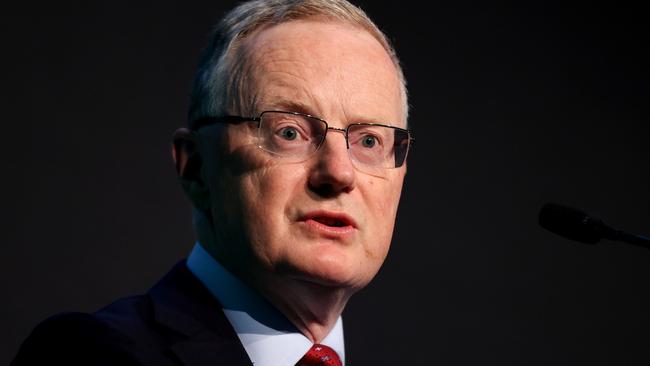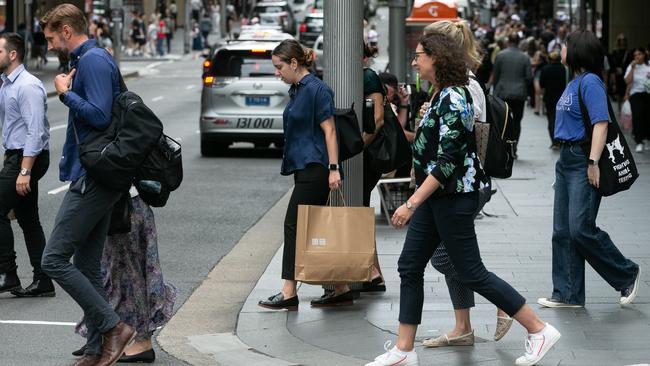Young homeowners to be hurt the most by rising interest rates
Young homeowners are likely to be hurt the most by rising interest rates, while Boomers are expected to do just fine.

Interest Rates
Don't miss out on the headlines from Interest Rates. Followed categories will be added to My News.
In a cruel twist of fate it is young Australians who have recently bought their first home who are expected to struggle the most as rates continue to rise.
Meanwhile, Boomers are expected to glide through the tougher economic environment the least affected.
On Tuesday, the Reserve Bank of Australia hiked the official cash rate by 25 basis points to 3.35 per cent – the ninth rise since May last year.
The rate has jumped 325 basis points in just 279 days, rendering it the fastest and largest rate hiking cycle on record.
Many Australian homeowners are struggling to stay afloat as new analysis emerges on who will be hit the hardest.
“The people who are going to feel it most are recent first home buyers, who are typically in their 30s and have the longest to run on their mortgage,” KPMG partner and senior economist Sarah Hunter told theAustralian Financial Review.
“The cohorts who purchased properties more than three years ago will have a smaller mortgage and they will be well on their way to paying it back, so the interest payment impact for them will be smaller.
“The final bunch who are neutral, or may even be gaining, who don’t have a mortgage and have savings in the bank, are likely to be older people still working or retirees.”

Carlos Cacho, an economist at investment bank Jarden, told AFR analysis revealed about 80 per cent of the $200 billion in excess savings accumulated during the pandemic is held by households with people aged over 55.
“Importantly 35-to-44 year-old households are the cohort most impacted by rising rates given higher debt levels and have seen no net increase in deposits since 2018, leaving them little buffer to maintain consumption in the face of rising mortgage repayments,” he said.
Ray White chief economist Nerida Conisbee told News Corp Australia first homebuyer areas with house and land packages “would be experiencing the most stress” from rising interest rates.
“It’s so stressful at the moment, when the average mortgage repayments up $1000 a month since the increases started,” she said.
Analysis from comparison website Canstar found that for the average Australian on a $500,000 mortgage, their monthly repayments will now jump by $969 per month or $11,628 per year if banks pass on the rate announced this week.

RBA governor Philip Lowe hinted that this wouldn’t be the last rate rise of the year.
He acknowledged that inflation is “moderating in response to lower energy prices, the resolution of supply-chain problems and the tightening of monetary policy.
“It will be some time, though, before inflation is back to target rates. The outlook for the global economy remains subdued, with below average growth expected this year and next.”
He also warned of “uncertainty” to come and said the current inflation levels were worryingly below the RBA’s goal.
“The Board recognises that monetary policy operates with a lag and that the full effect of the cumulative increase in interest rates is yet to be felt in mortgage payments,” he said.
“There is uncertainty around the timing and extent of the expected slowdown in household spending …
“The Board’s priority is to return inflation to target.
“High inflation makes life difficult for people and damages the functioning of the economy. And if high inflation were to become entrenched in people’s expectations, it would be very costly to reduce later.
“The Board is seeking to return inflation to the two to three per cent range while keeping the economy on an even keel, but the path to achieving a soft landing remains a narrow one.”
Data released by financial services company Otivo revealed the latest interest rate hike has put a further 100,000 households under mortgage stress – when more than 30 per cent of a household’s income is spent on home loan repayments.
It means more than 1.3 million Australian households are now struggling.

Otivo founder Paul Feeney said owner-occupied homeowners with a mortgage of $600,000 will need to find an extra $1625 a month to cover the repayments.
“That’s a lot of money for every household going straight into the mortgage,” Mr Feeney told NCA NewsWire.
When asked about whether he was concerned the ongoing rate rises would push Australia into a recession, Prime Minister Anthony Albanese said Australia was “not immune” from the impact of the global economy.
“And what we will see from here is a downward trend. We know that the global economy arising from the Russian invasion of Ukraine has seen a global spike in inflation, and we know that in some advanced economies that reached double digits,” Mr Albanese said on Wednesday morning.
“It hasn’t reached that here, but it is clearly having an impact.
“We’re not immune from the impact of the global economy.”
Originally published as Young homeowners to be hurt the most by rising interest rates




